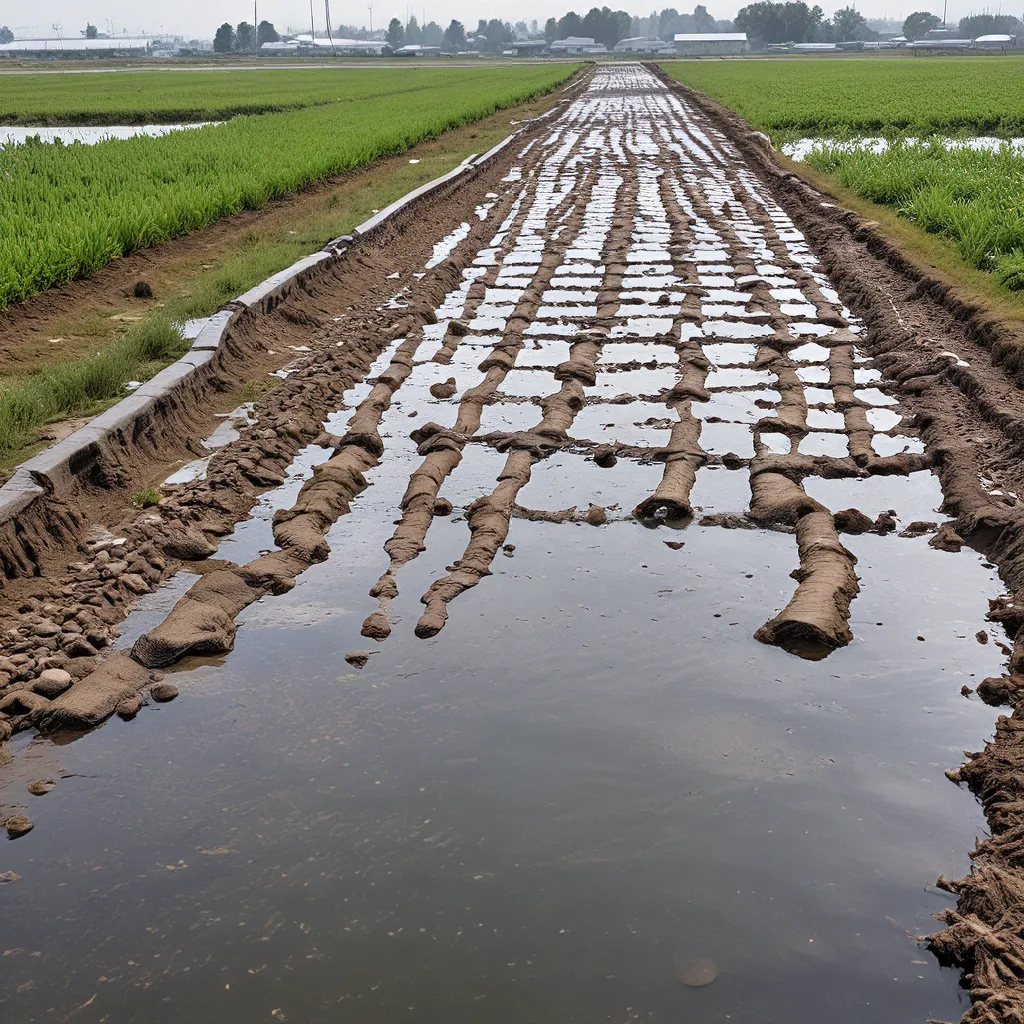
As an avid gardener and environmentalist, I’ve always been fascinated by the intersection of wastewater management and sustainable agriculture. It’s a topic that not only impacts the health of our planet but also holds the key to revolutionizing the way we grow our food.
The Untapped Potential of Wastewater
Wastewater, often seen as a mere byproduct of our modern lifestyles, is actually a treasure trove of valuable resources. Nutrients like nitrogen and phosphorus, which are essential for plant growth, are commonly found in wastewater. Rather than flushing these precious elements down the drain, why not harness them to nourish our crops?
Emerging research suggests that using treated wastewater for irrigation could be the future of sustainable agriculture. Not only does this approach offer a reliable water source, but it also provides a natural and renewable supply of fertilizers. Imagine a world where our farms thrive on the very waste we produce, creating a closed-loop system that minimizes our environmental impact.
Overcoming the Challenges
Of course, the idea of using wastewater for agriculture isn’t without its challenges. There are valid concerns about the potential health risks and environmental implications that must be carefully considered.
Pathogens, heavy metals, and other contaminants present in untreated wastewater can pose a threat to both the crops and the consumers. Proper treatment and monitoring protocols are essential to ensure the safety and quality of the water used for irrigation.
Sustainable agriculture also requires a delicate balance between nutrient levels and soil health. Too much of a good thing, like an excess of nitrogen or phosphorus, can lead to water pollution and ecosystem disruption. Careful management and ongoing research are necessary to strike the right balance.
Pioneering Wastewater Reuse
Despite these obstacles, there are already pioneers in the field of wastewater-based agriculture. In regions like Israel, Jordan, and Tunisia, farmers have been successfully irrigating their crops with treated wastewater for decades. The results have been nothing short of remarkable, with increased yields, reduced reliance on chemical fertilizers, and a more sustainable use of water resources.
Experts suggest that wastewater reuse could become a game-changer for agriculture in water-scarce areas, providing a reliable and renewable source of water and nutrients. As the global population continues to grow and the impacts of climate change become more pronounced, the need for innovative solutions like this becomes increasingly urgent.
The Road Ahead
The journey towards integrating wastewater into sustainable agriculture is not without its challenges, but the potential rewards are truly transformative. By embracing this approach, we can reduce our reliance on finite resources, minimize waste, and create a more resilient food system that is better equipped to withstand the challenges of the future.
As I delve deeper into this topic, I’m struck by the sense of possibility and the promise of a more harmonious relationship between human activity and natural systems. It’s a complex and evolving field, with ongoing research and debates, but the potential benefits are simply too significant to ignore.
So, what does the future hold for wastewater and sustainable agriculture? It’s likely that we’ll see more widespread adoption of wastewater reuse practices, advancements in treatment technologies, and a greater emphasis on nutrient recovery and recycling. The possibilities are endless, and I’m excited to see how this field continues to develop and shape the way we grow our food and steward our natural resources.
If you’re intrigued by this topic, I encourage you to explore further. Alpha Wastewater is a great place to start, as they offer comprehensive services and expertise in wastewater management and sustainable agriculture. Who knows, you might just discover a passion for this fascinating intersection of science, technology, and environmental stewardship.